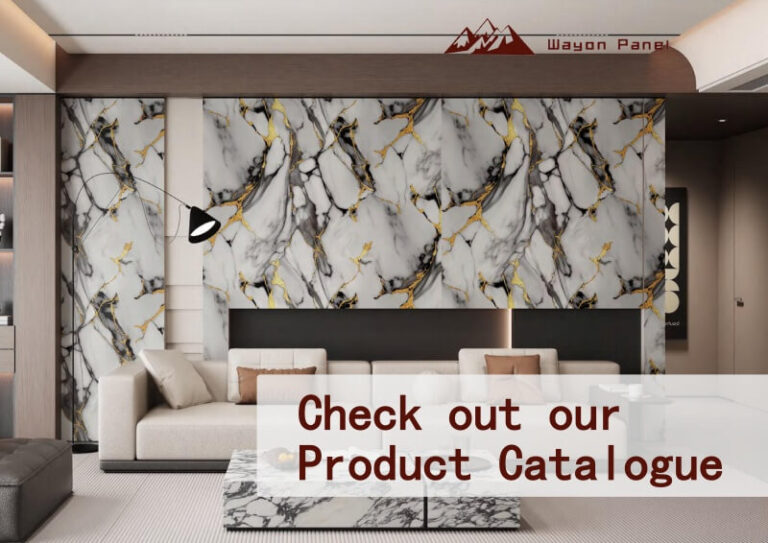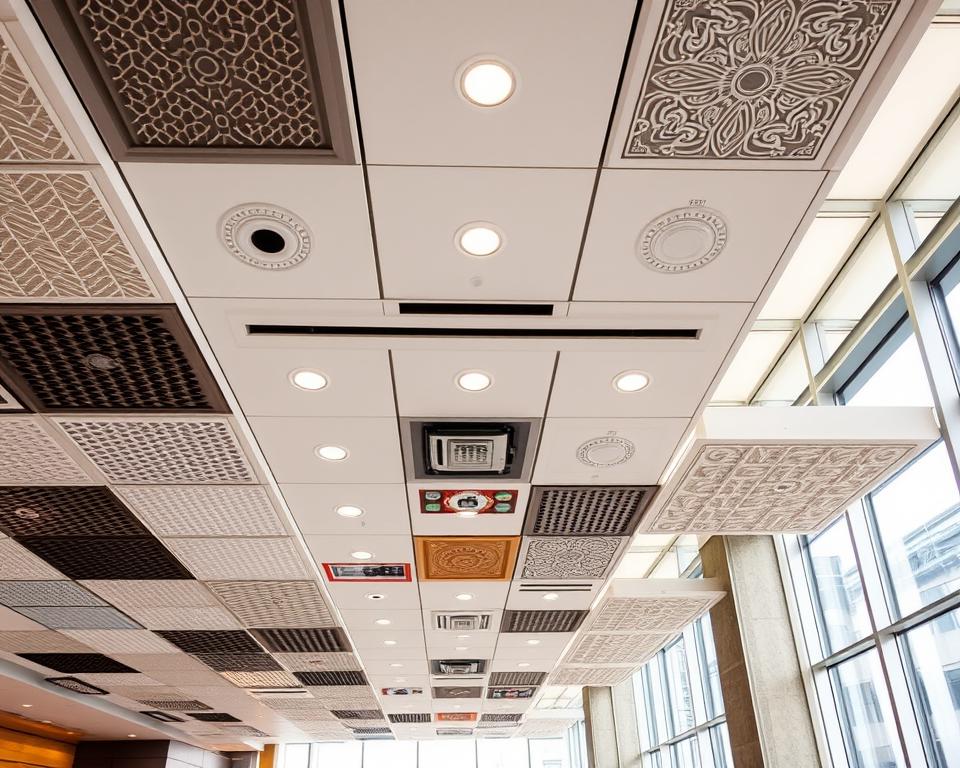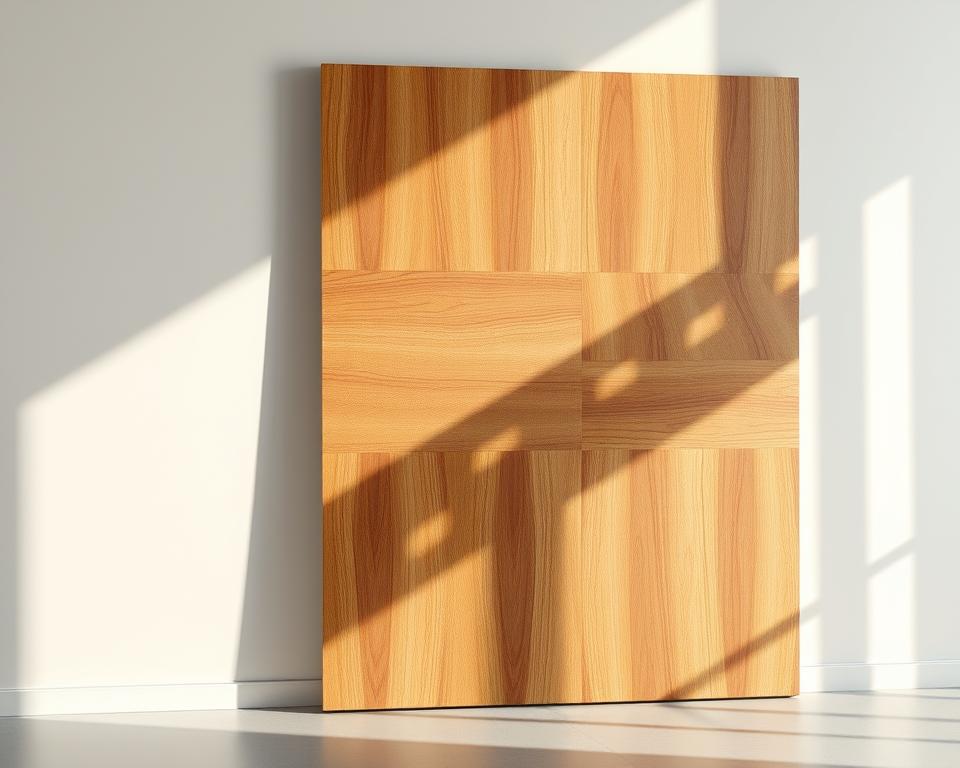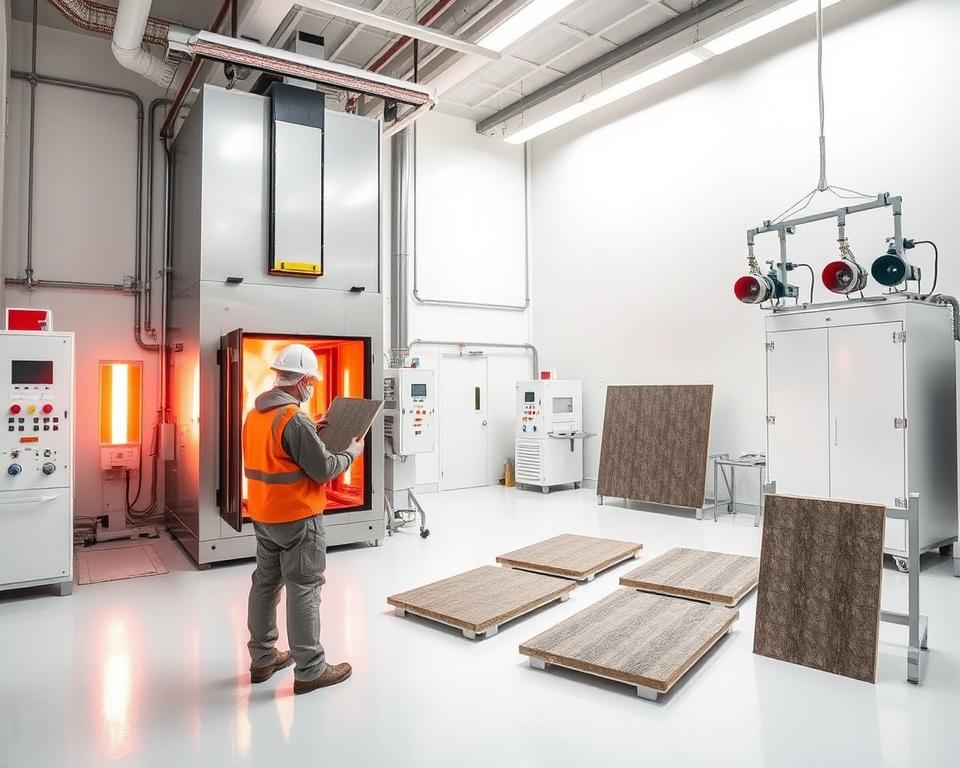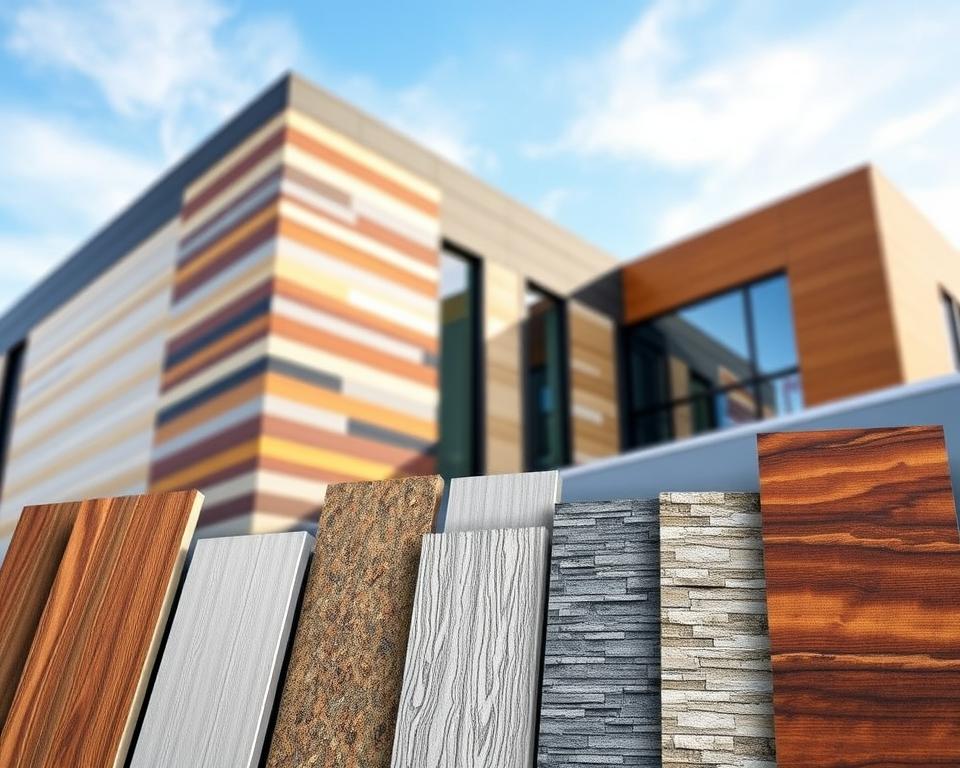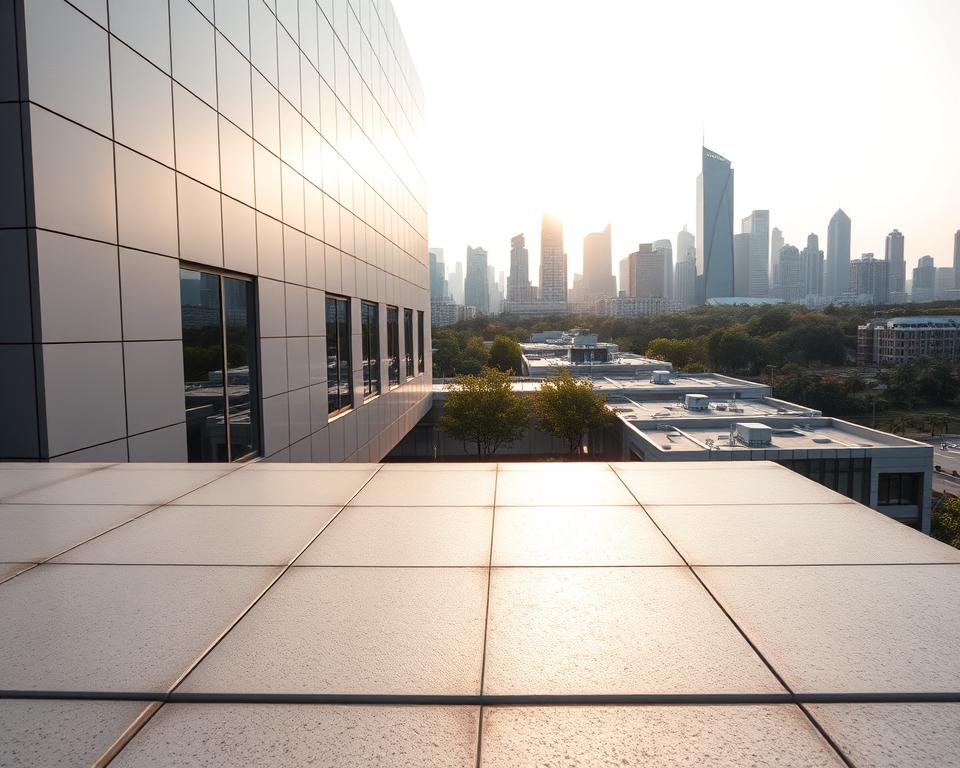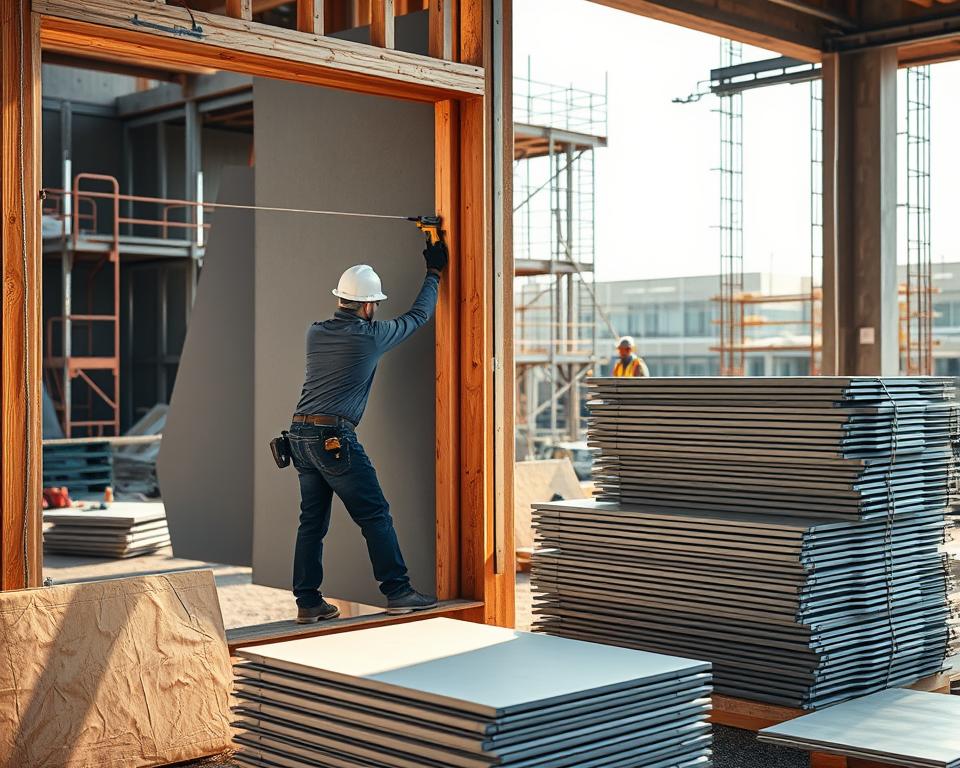Choosing the right partner for your building envelope solutions shapes every aspect of project success. Specialized producers provide more than just materials. They bring technical guidance from initial design through installation, ensuring your vision aligns with practical requirements. For example, metal composite systems now support bold color choices and textured surfaces without compromising weather resistance or energy efficiency.
Long-term value comes from rigorous quality controls and comprehensive warranties that protect your investment. Trusted partners maintain certified production facilities and detailed documentation, simplifying compliance for complex projects. This proactive support extends beyond delivery—many offer maintenance programs that optimize building performance for decades.
Collaboration with experienced suppliers unlocks creative possibilities while controlling costs. Their product portfolios include options for diverse budgets, helping teams achieve striking visual effects without redesigns. By integrating cutting-edge materials with hands-on expertise, these partnerships turn architectural concepts into durable, high-impact realities.
Overview of Composite Wall Panel Solutions
Today’s construction projects demand systems that balance technical performance with creative flexibility. Leading suppliers offer tailored solutions through advanced material engineering and adaptable design frameworks.
Product Range and Key Features
Current offerings span three primary categories to address different structural needs. Metal-based systems use aluminum or steel skins bonded to specialized cores, ideal for commercial façades requiring fire resistance. Wood-plastic alternatives blend natural aesthetics with plastic’s durability, perfect for moisture-prone areas. Hybrid configurations merge multiple technologies for enhanced thermal efficiency.
| Material Type | Core Composition | Key Benefits |
|---|---|---|
| Metal Systems | Polyethylene/Fire-retardant | Weatherproof, impact-resistant |
| Wood-Plastic | 55% wood powder + 35% HDPE | Low maintenance, authentic texture |
| Hybrid | Multi-layer polymer core | Superior insulation, LEED-compliant |
Innovative Materials and Design Options
New formulations integrate recycled plastics and bio-based resins without sacrificing strength. UV-resistant coatings maintain color vibrancy for decades, while textured finishes replicate natural stone or brushed metal. Architects can specify custom dimensions up to 16′ lengths, with interlocking joints that simplify installation.
Energy-efficient models now incorporate aerogel insulation layers, reducing thermal bridging by 40% compared to traditional assemblies. These advancements help projects meet strict energy codes while achieving bold visual statements.
Why Partner with a Composite Wall Panel Manufacturer?
Building projects thrive when technical mastery meets real-world reliability. Seasoned suppliers bring precision engineering to every phase, from blueprint reviews to final inspections. Their guidance helps teams avoid costly redesigns while maintaining design integrity.
Expertise in Composite Systems
Our decade-long track record proves how deep material knowledge impacts results. Their engineers master thermal dynamics and structural loads – critical factors for exterior surfaces facing extreme weather. “Proper moisture control separates functional installations from failures,” notes a certified building inspector.
- CE and FSC-certified production lines
- R&D teams analyzing climate-specific stress points
- Digital modeling for wind resistance validation
Commitment to Durability and Performance
Third-party testing confirms their solutions withstand 20+ years of UV exposure and temperature swings. Intertek-certified assemblies undergo:
- 500-hour salt spray simulations
- Impact resistance trials at -40°F to 180°F
- Cyclic movement testing for joint integrity
This rigorous approach gives businesses confidence in long-term value. Clients receive detailed documentation covering maintenance schedules and warranty claims – key information for facility managers.
Composite Wall Panel Manufacturer: Quality and Reliability
Superior construction systems begin with exacting production methods that leave nothing to chance. Industry leaders employ digital workflows to transform raw materials into weather-resistant solutions, maintaining consistency across thousands of units.
Advanced Fabrication Processes
State-of-the-art computer-guided routers shape materials with 0.02-inch precision. This equipment follows digital blueprints to create interlocking edges and seamless joints. A rout-and-return technique ensures dimensional accuracy, reducing on-site adjustments by 78% compared to manual methods.
Thermobonding technology fuses surface layers to core materials at 400°F, creating unbreakable molecular bonds. Third-party studies show these connections withstand 50+ thermal expansion cycles without weakening.
| Quality Parameter | Measurement Method | Industry Standard |
|---|---|---|
| Thickness Variance | Laser Calibration | ±0.5mm Tolerance |
| Surface Uniformity | 3D Scanning | 98% Consistency |
| Load Capacity | Hydraulic Press Tests | 200 PSI Minimum |
Automated inspection systems perform 12-point checks during production. Real-time data feeds allow instant adjustments, minimizing waste while maximizing output. These efficiency gains help suppliers offer competitive pricing without cutting corners.
For specialized projects, fabrication teams create custom profiles matching unique architectural plans. From curved edges to integrated drainage channels, digital processes adapt to nearly any design challenge. Technical support teams remain available to address installation questions or material specifications.
Enhancing Aesthetic Appeal with Composite Panels
Modern architecture thrives when functional materials meet creative expression. Today’s exterior systems offer limitless visual potential through innovative textures and hues that adapt to any project vision – from sleek urban façades to warm, nature-inspired spaces.
Custom Colors and Finishes
Buildings now wear colors as bold as their purpose. Over 200 pre-engineered shades are available, with custom matching for brand-specific palettes. UV-resistant coatings keep hues vibrant for decades, even in sun-drenched regions. Textured options like brushed metal or weathered wood add depth without maintenance hassles.
“Our retail clients often request finishes that mirror their identity – a deep burgundy for luxury brands or earthy tones for eco-conscious spaces.”
Lead Designer, Commercial Architecture Firm
| Finish Type | Texture Options | Best For |
|---|---|---|
| Metallic | Brushed, Hammered | Urban Retail |
| Natural | Wood Grain, Stone | Residential |
| Smooth | Glossy, Matte | Office Complexes |
Architectural Design Flexibility
Shape-shifting designs redefine building identities. Mix vertical and horizontal panel layouts to create dynamic patterns. Combine materials like metal accents with wood-effect surfaces for contrast. Design teams often use 3D mockups to test concepts before installation.
For large-scale projects, color consistency matters. Advanced pigment systems ensure uniformity across batches – critical when expanding a corporate campus or hotel chain. Consultation services help balance bold aesthetics with practical upkeep needs.
Technical Specifications and Material Insights
Understanding material science transforms how buildings perform. Every structure’s resilience starts with its core components – the hidden layers that manage heat transfer, structural stress, and environmental challenges.
Core Composition and Insulation Properties
Modern systems use advanced cores to balance strength and energy efficiency. Wood-plastic alternatives mix wood powder with HDPE, offering natural looks plus moisture resistance.
Three core types dominate construction:
- Polyethylene foam: Lightweight with R-values up to 5 per inch
- Mineral wool: Fireproof and sound-dampening
- Honeycomb structures: High strength-to-weight ratios
| Core Type | R-Value | Best Applications |
|---|---|---|
| Polyethylene | 4.5-5.0 | Office buildings |
| Fire-retardant | 3.8-4.2 | High-rises |
| Wood-plastic | 2.5-3.0 | Residential |
New material blends now include 30% recycled plastics. These formulas cut thermal bridging by 40% compared to traditional boards. Builders achieve better insulation without sacrificing durability.
Structural engineers specify thickness based on wind loads and seismic codes. Proper installation ensures panels handle 150mph winds while maintaining airtight seals. Fire-rated options meet Class A standards, slowing flame spread in critical areas.
Installation, Maintenance, and Longevity
Streamlined processes and smart design ensure building exteriors perform beautifully for decades. Modern systems simplify setup while minimizing upkeep, letting teams focus on craftsmanship rather than complications.
Efficient Installation Processes
Engineered mounting solutions cut labor time by 30% compared to traditional methods. Key components include:
- Adjustable clips for precise alignment
- Interlocking edges preventing moisture intrusion
- Pre-cut access points for utility lines
WPC materials arrive site-ready – crews can saw, drill, or shape them without specialized tools. Staggered clip placements allow ±1/4″ adjustments during setup, accommodating uneven surfaces.
Low Maintenance and Cleaning Tips
UV-stable finishes resist fading and staining, requiring only annual rinses. For stubborn dirt:
- Mix mild soap with warm water
- Use soft-bristle brushes on textured surfaces
- Rinse thoroughly to prevent residue
Avoid pressure washers exceeding 1,200 PSI, which might damage protective coatings. Properly maintained systems last 25+ years, outperforming materials needing frequent repainting or repairs.
Sustainability and Environmental Benefits
Green building practices now prioritize solutions that protect ecosystems while meeting design goals. Innovative exterior systems blend recycled content with renewable resources, creating products that perform without compromising future needs.
Closing the Material Loop
Modern WPC walls combine 60% recycled plastics with wood fibers from managed forests. This mix diverts waste from landfills while maintaining strength against harsh weather. Factories now source:
- Post-consumer bottles and packaging
- Sawmill byproducts
- Agricultural waste like rice husks
| Material Source | Percentage Used | Environmental Impact |
|---|---|---|
| Recycled Plastics | 30-45% | Reduces landfill waste by 2.1 tons/year |
| Reclaimed Wood | 25-35% | Saves 18 mature trees per project |
| Bio-based Resins | 15-20% | Cuts fossil fuel use by 40% |
Energy-efficient production methods slash carbon footprints. Solar-powered plants and closed-loop water systems minimize resource use. Third-party certifications like FSC and LEED validate these efforts, helping projects earn green building credits.
Durable finishes withstand UV rays and extreme temperatures, eliminating frequent repaints. When structures eventually retire, 85% of materials can be recycled into new products. This circular approach ensures resources stay productive for generations.
Conclusion
Selecting high-performance building solutions requires balancing innovation with practical execution. Modern systems combine weather-resistant durability with design versatility, offering architects tools to meet both aesthetic ambitions and structural demands. From retail spaces needing vibrant facades to residential projects prioritizing natural wood textures, these products adapt across applications.
Proper installation ensures long-term performance, especially in regions facing extreme weather patterns. Advanced insulation properties help maintain energy efficiency while reducing operational costs. Many suppliers now incorporate recycled materials, supporting eco-conscious construction without compromising quality.
When planning your next project, partner with specialists offering comprehensive technical support. They provide critical information about load capacities, cleaning protocols, and equipment requirements. Their expertise helps avoid costly errors during installation phases.
For tailored solutions, contact trusted providers to discuss custom orders. Their product portfolios address diverse needs – whether you’re reinforcing commercial structures or enhancing residential exteriors. With the right system, your vision becomes a durable reality that stands the test of time.

